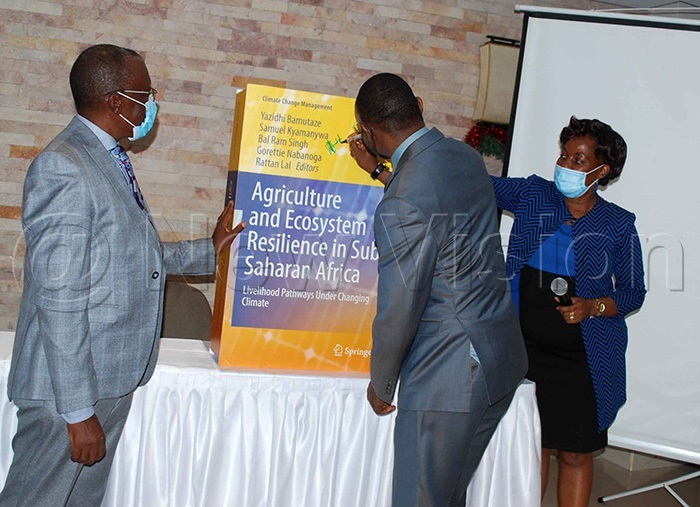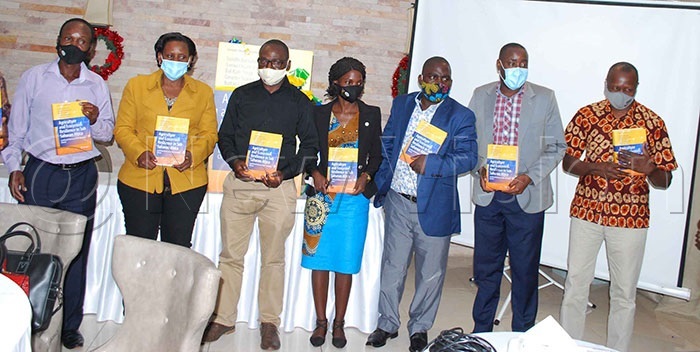Programme restructuring worries Makerere dons
Restructuring came as a directive and a condition for salary enhancement.
EDUCATION|MAKERERE|RESTRUCTURING
KAMPALA - Makerere University dons have expressed worry over the instructions to restructure programmes at undergraduate level.
According to the Deputy Vice chancellor in charge of Academics Umar Kakumba, programme restructuring came as a directive and a condition for salary enhancement.
"Restructuring is part of renewing at individual, Organisation and institutional level, we must embrace change because it is a reality of life although it comes with a lot of heat since it threatens the status quo.
"We must admit that we need to restructure not the organisational structure but the programmes," he said.
He observed that the university has been restructuring over time but this time, the method is not the usual one but came as a directive.
"If you want government to take over the wage bill, and stop the strikes concerning wage, Makerere must restructure programmes and consolidate the offerings.

You must remember where we have come from, right from salary enhancement, government taking over the wage bill of the university saw our salaries enhanced with a professor earning more than sh15m," he said.
As a former dean in the school of business, Kakumba expressed worry that many of the programs he started are being affected.
Launching the book titled "Agriculture and ecosystem Resilience in sub-Saharan Africa: livelihood pathways under changing climate," Kakumba said the restructuring is not about diminishing everything since the first pillar of Makerere is to be a research-led university.
"Our issue is that we are not going to touch graduate programs like the MS and PhDs since we want to become a research-led university because one of the tools is having an increased enrollment in graduate training programmes," he said.
He, however, stressed that the restructuring will not affect the human resource since it is operating at 45% but will help to rationalise the human resource and reduce the burden of teaching especially on undergraduates.

"The argument is that if you have seven programmes, you have to reduce them to 4, we have left it to you to choose and come up with four consolidated ones at undergraduate level.
It is not about killing programs but it is about consolidation while building, more capacity for graduate training and research-led," he said.
Regarding stalled promotion and recruitment, Kakumba said that when government took over the wage bill, it meant no recruitment and no promotion due to the budget ceiling of 70% being wage and 30% non-wage.
He however said the inter-ministerial committee is negotiating with public universities to come up with a better funding model.
"We are negotiating to ensure that government gives a supplementary budget towards promotion and recruitment and once we secure that next financial year, we can be able to promote," he said.
Kakumba applauded the Principal investigator of project titled "Regional Capacity Building for Sustainable Natural Resource Management and Agricultural Improvement under Climate change" (CAPSNAC) for Authoring the book on Agriculture and Ecosystem Resilience.
He observed that the book through its chapters is addressing the critical SDGs and also mitigate the negative impact of agricultural productivity brought about by climate change in Africa.

Prof. Gorret Nabanoga, the Deputy Principal College of Agriculture and environmental Sciences stressed that the book draws contributions by over 80 scientists with a keen interest in Sub Saharan Africa (SSA) with expertise in both natural biophysical and social science.
"The main domain of science is to create new knowledge through accurate research of integrity that can assist in a positive transformation of society.
This book, therefore, addresses issues at micro, meso, and macro levels using various analytical lenses," she said.
According to Prof. Samuel Kyamanywa, the Principal Investigator CAPSNAC, agricultural productivity and natural resources are increasingly facing threats from the variable and changing climate, which is negatively impacting development.
He observed that most of the universities in East Africa have been repositioning themselves to ensure that they are responding innovatively to the national challenges and needs.
"To be involved in developing resilient agricultural systems, the universities must have appropriate and strong capacities in natural resource management and sustainable agriculture," Kyamanywa said.
The fiver year CAPSNAC project he said delivered 10 PhD's, 5 for University of Juba, 3 for Makerere University and 2 for Addis Ababa University, thematically focusing on natural resource management, agriculture, food productivity and climate change.